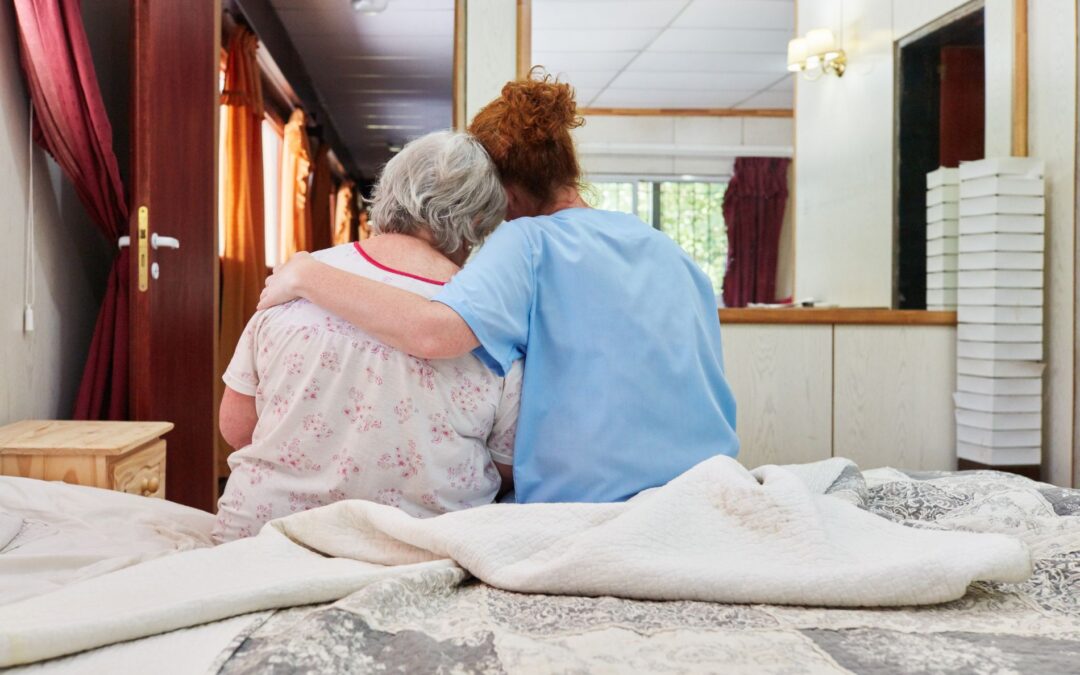Making the decision to opt for hospice care services for a loved one is a challenging and emotional process. As families in Ohio navigate this journey, it is essential to understand the diverse types of care and support offered by hospice providers like Comfort Heart Hospice. Hospice care encompasses a range of services tailored to meet each individual’s unique needs and preferences, ensuring that both patients and their families receive the support they need throughout the end-of-life experience.
This article will provide readers with a comprehensive guide to the various hospice care services offered by Comfort Heart Hospice in Ohio. From expert medical care to emotional and spiritual support, our goal is to empower families with the knowledge they need to make informed decisions about their loved one’s care options. By understanding the types of services provided and the personalized approach by Comfort Heart Hospice, families can feel confident in their choice of hospice care.
At Comfort Heart Hospice, the small, intimate team fosters meaningful connections with patients and their families, providing personalized, quality care prioritizes comfort, dignity, and emotional well-being. With a diverse range of services and a commitment to comprehensive hospice support, Comfort Heart Hospice in Ohio ensures that each individual receives the care and compassion they need during this crucial time.
1. Medical Care and Symptom Management
One of the core components of hospice care services is expert medical care, focusing on pain management and symptom control. The goal is to ensure patients experience the highest quality of life possible during their end-of-life journey. This involves:
– Regular monitoring and assessments: The hospice team will closely monitor the patient’s medical condition and assess any pain or symptoms they experience to determine the most effective course of treatment.
– Administering medications: The hospice team will prescribe and administer appropriate medications for pain relief and symptom management.
– Liaising with the patient’s physician: The hospice team and the patient’s primary physician will collaborate to develop and implement a comprehensive care plan that addresses their medical needs.
2. Emotional and Spiritual Support
Addressing the patient’s and their family’s emotional and spiritual needs is a critical aspect of hospice care services. This may include:
– Counseling: The hospice team includes skilled counselors who can guide and support patients and families as they navigate grief, loss, and complex emotions.
– Spiritual support: For patients and families with spiritual needs or religious beliefs, the hospice team may include chaplains or spiritual advisors who offer religious guidance, prayer, or spiritual counseling.
– Support groups: Comfort Heart Hospice may connect families to support groups or group therapy sessions to help them connect with others who share similar experiences and emotions.
3. Comprehensive Support from the Interdisciplinary Hospice Team
Hospice care services at Comfort Heart Hospice in Ohio are delivered by an interdisciplinary team of professionals, each with a unique skill set and area of expertise. This team works together to address every patient’s needs, ensuring comprehensive and personalized care. Key members of the interdisciplinary team may include:
– Physicians: Medical doctors who oversee the patient’s medical care, symptom management, and pain relief.
– Nurses: Skilled nurses manage and administer medications, monitor symptoms, and provide education and support to patients and families.
– Social workers: Licensed clinical social workers address the non-medical needs of patients and families, including emotional support, community resources, and assistance with advance directives or end-of-life planning.
– Counselors: Grief therapists or counselors provide emotional and psychological support to both patients and their families.
– Spiritual care providers: Chaplains or spiritual advisors offer religious guidance, prayer, or spiritual counseling.
– Home health aides: Trained aides assist with activities of daily living such as bathing, dressing, and grooming.
– Volunteers: Trained volunteers offer companionship and support, often running errands, providing respite for caregivers, or engaging with patients in activities like reading or conversation.
4. Bereavement Support for Families
Comfort Heart Hospice recognizes that the end-of-life journey extends beyond a patient’s passing, with families often needing continued support and guidance as they navigate their grief. Bereavement support services provided by Comfort Heart Hospice may include:
– Grief counseling: Licensed counselors provide one-on-one counseling to help individuals process their grief and loss.
– Support groups: Families can access support groups to share their experiences and emotions with others who have experienced a similar loss, creating a sense of camaraderie and community.
– Memorial services: Comfort Heart Hospice may host commemorative events or memorial services to honor the lives of patients and provide families an opportunity to celebrate their loved one’s memory.
Embracing Comprehensive and Compassionate Hospice Care Services in Ohio
Understanding the various types of hospice care services available through Comfort Heart Hospice in Ohio can empower families to make well-informed decisions about end-of-life care options for their loved ones. With its small, intimate team and comprehensive, personalized approach to hospice care, Comfort Heart Hospice offers support, compassion, and guidance, ensuring that each patient and their family receive the highest quality of service possible.
Are you in Ohio and seeking hospice care services for a loved one? Don’t hesitate to contact the dedicated team at Comfort Heart Hospice, who can walk you through their comprehensive range of hospice care services and support. Together, you can create a customized care plan that meets the unique needs and preferences of your loved one, providing the comfort, dignity, and peace they deserve during their end-of-life journey.


Recent Comments